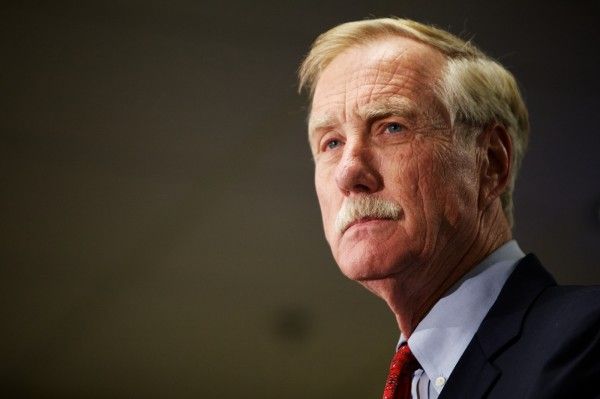Senator Angus King Joins the Democratic Caucus


With little surprise, the newly elected independent Senator from Maine, Angus King, declared that he will join the Democratic Caucus at a press conference on Wednesday.
The announcement followed Senator King's consultation with Majority Leader Harry Reid, and will tally 55 Democratic members in the Senate. Since the Democrats retained the majority in the Senate this election, King's decision did not come as a surprise. Sen. King noted, “affiliating with the majority makes the most sense”.
Since Angus King announced his intention to run for Senator Snowe's seat earlier this year, the Democratic party expected King to caucus with them. In fact, the party did not endorse the Democratic candidate from Maine, Cynthia Dill, offering her very limited support in the election. The Republicans also recognized the likelihood of King's partisan affinity and launched numerous attack ads against him during throughout the campaign season.
Senator King considered joining neither side, but told the Washington Post “this simply wouldn’t be practical, and in fact would severely compromise my ability to be effective on behalf of Maine.” Indeed, a senator that does not join a party caucus would not be able to participate in the committee structure, which acts as the epicenter of political labor in Washington. While Senator King has shown his interest to serve on the Finance Committee, Sen. Reid made no promise; a clear reminder that freshman senators are rarely granted assignment to such a high committee position.
However, Senator King's move to join the Democratic caucus does not mean he will necessarily oppose the GOP. Today, he told reporters that he is aiming at being a “bridge between the parties.” Fellow independents senators, Joe Lieberman from Connecticut and Bernie Sanders from Vermont who both caucused with Democrats, told Senator King he would not lose his independence based solely on announcing a caucus.
Senator Snowe considered the political divide in Washington as one reason behind her decision to retire, Senator King could serve as a fitting successor with an opportunity to help close the gap between the mainstream parties.


